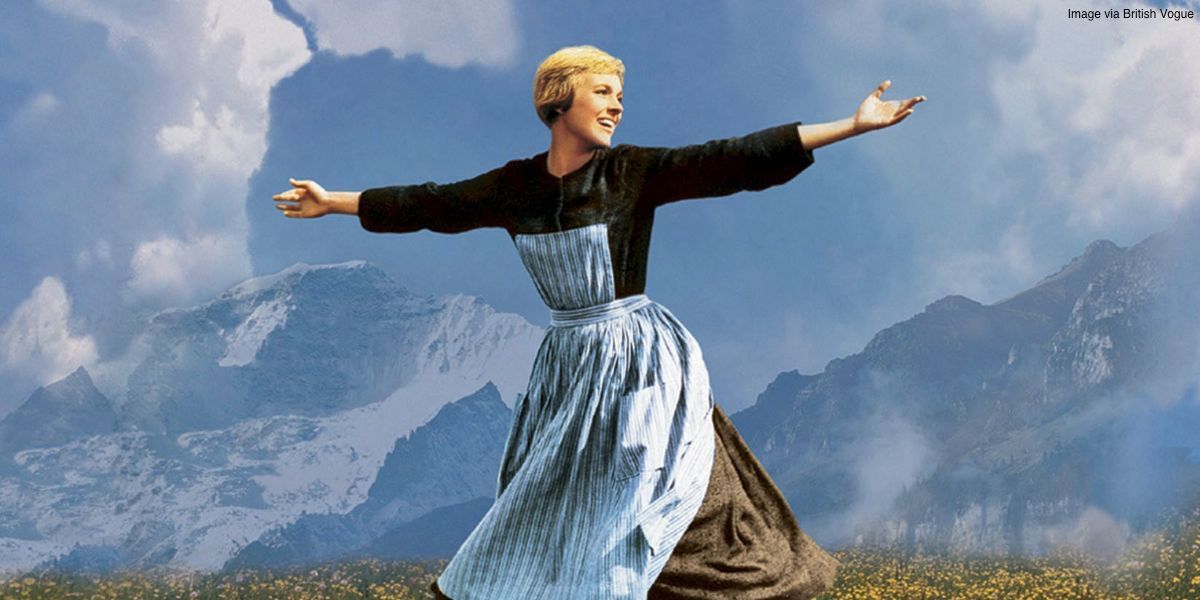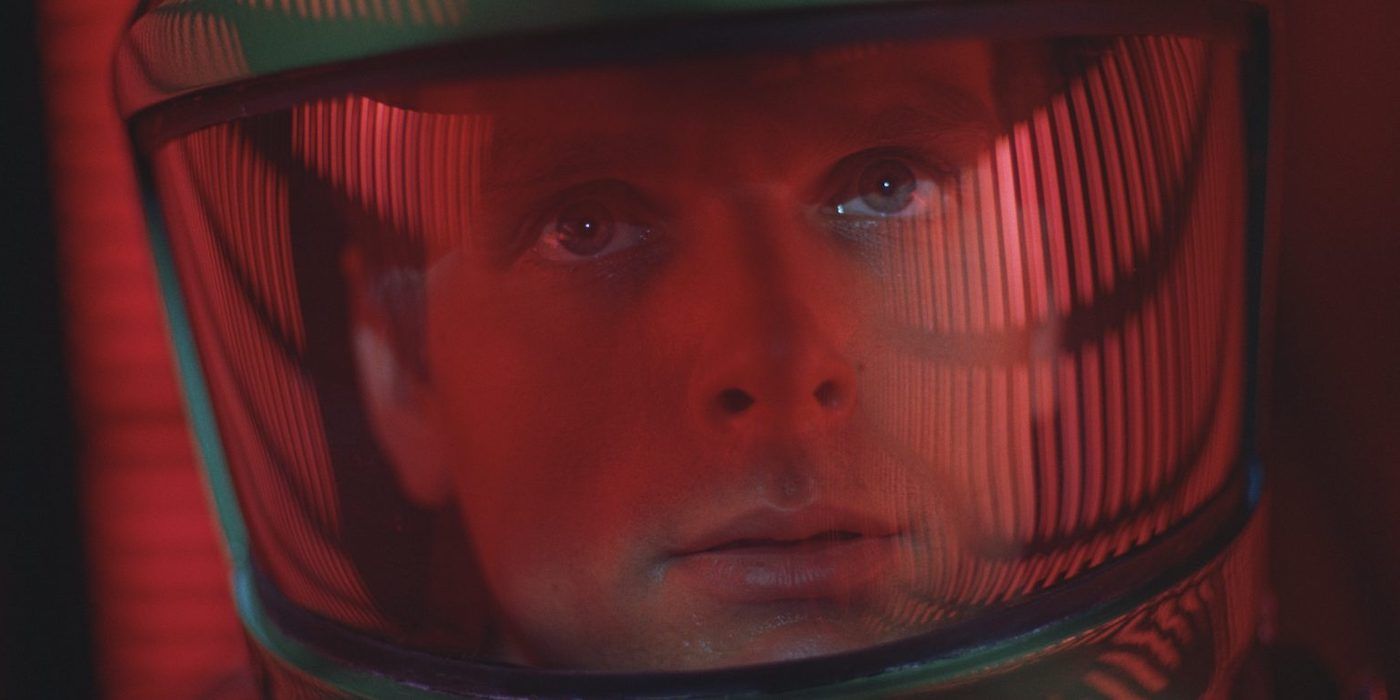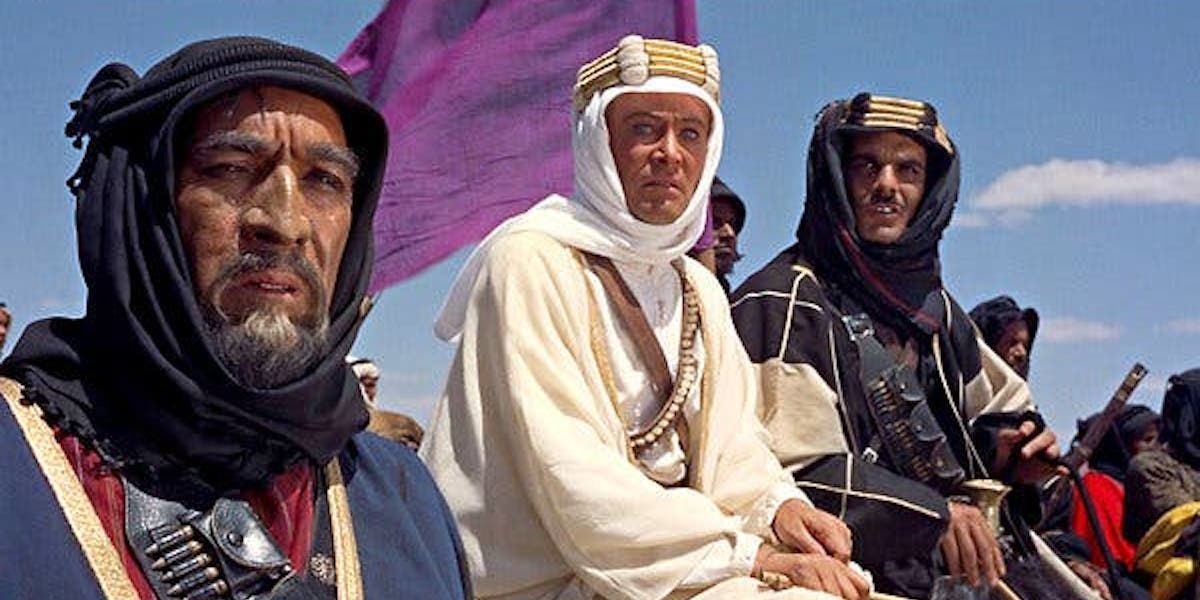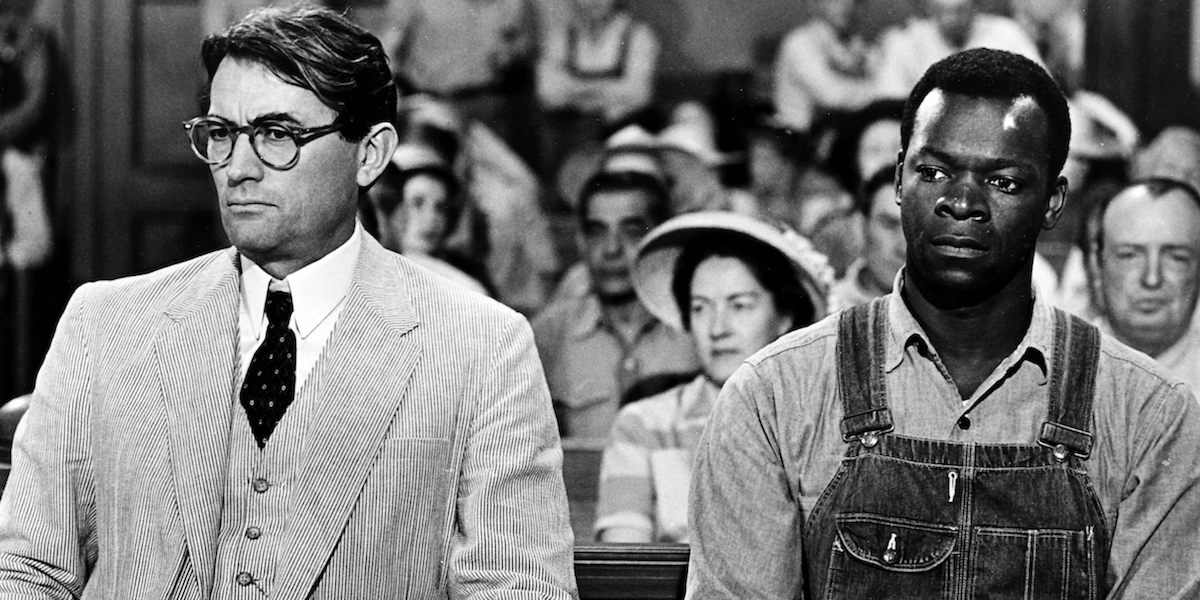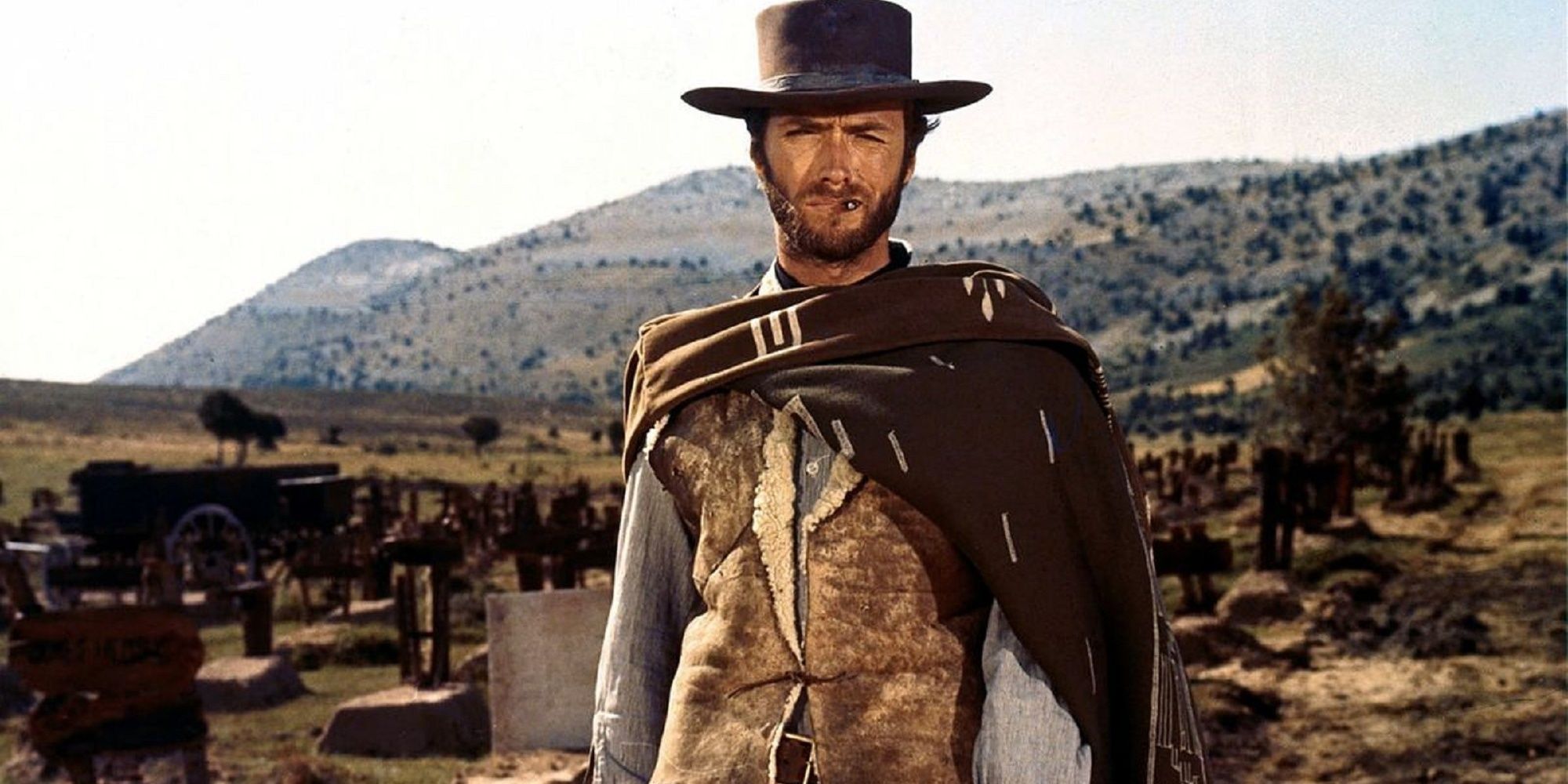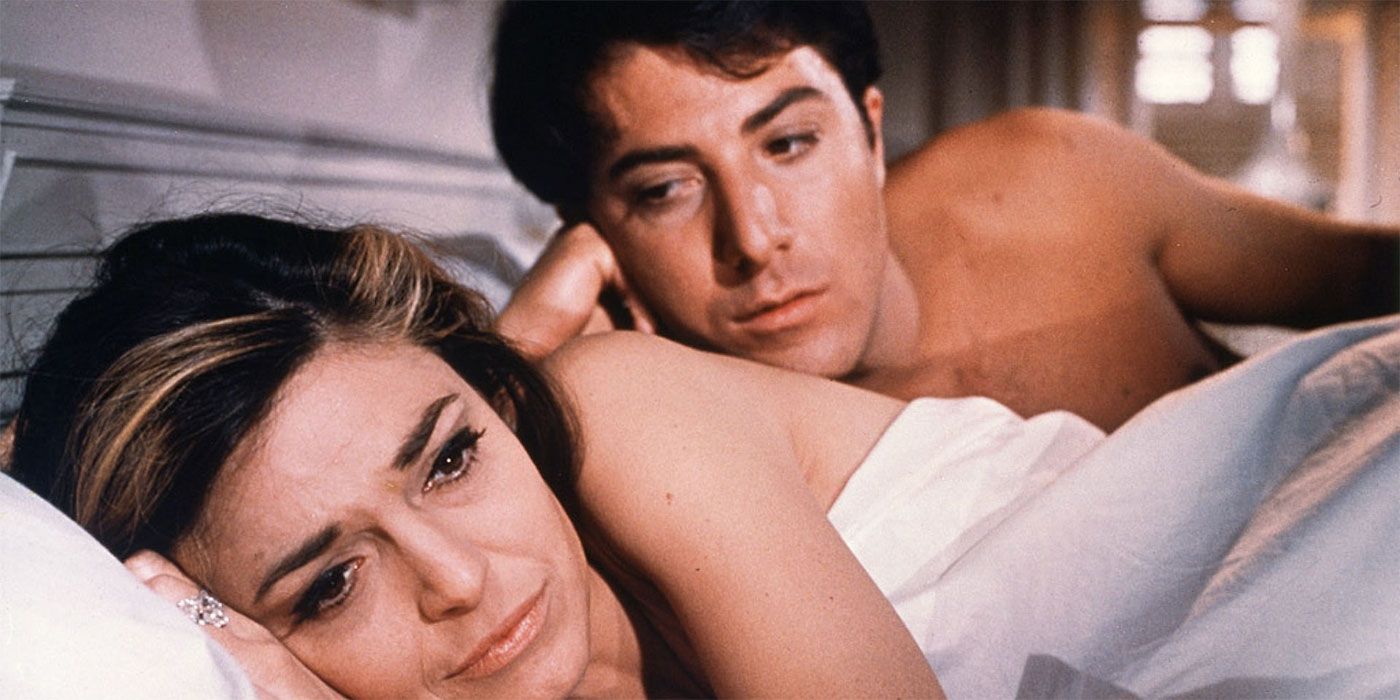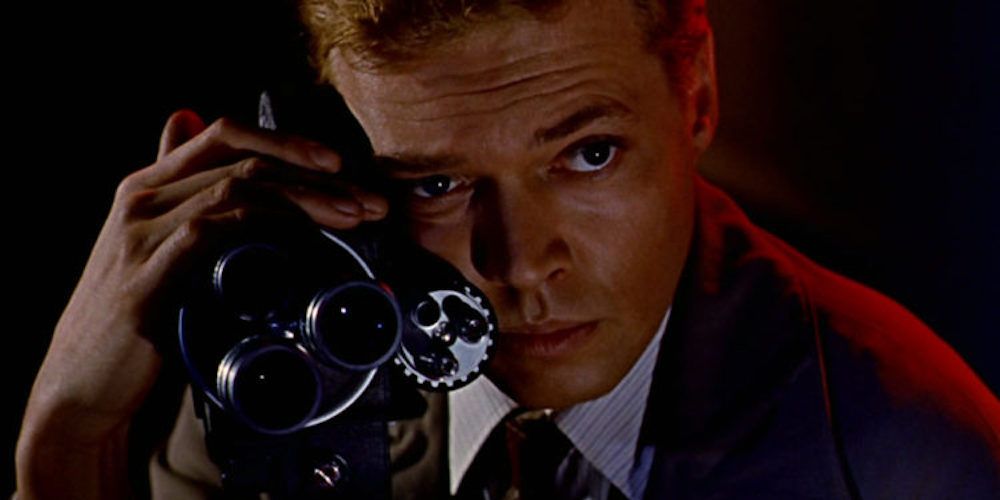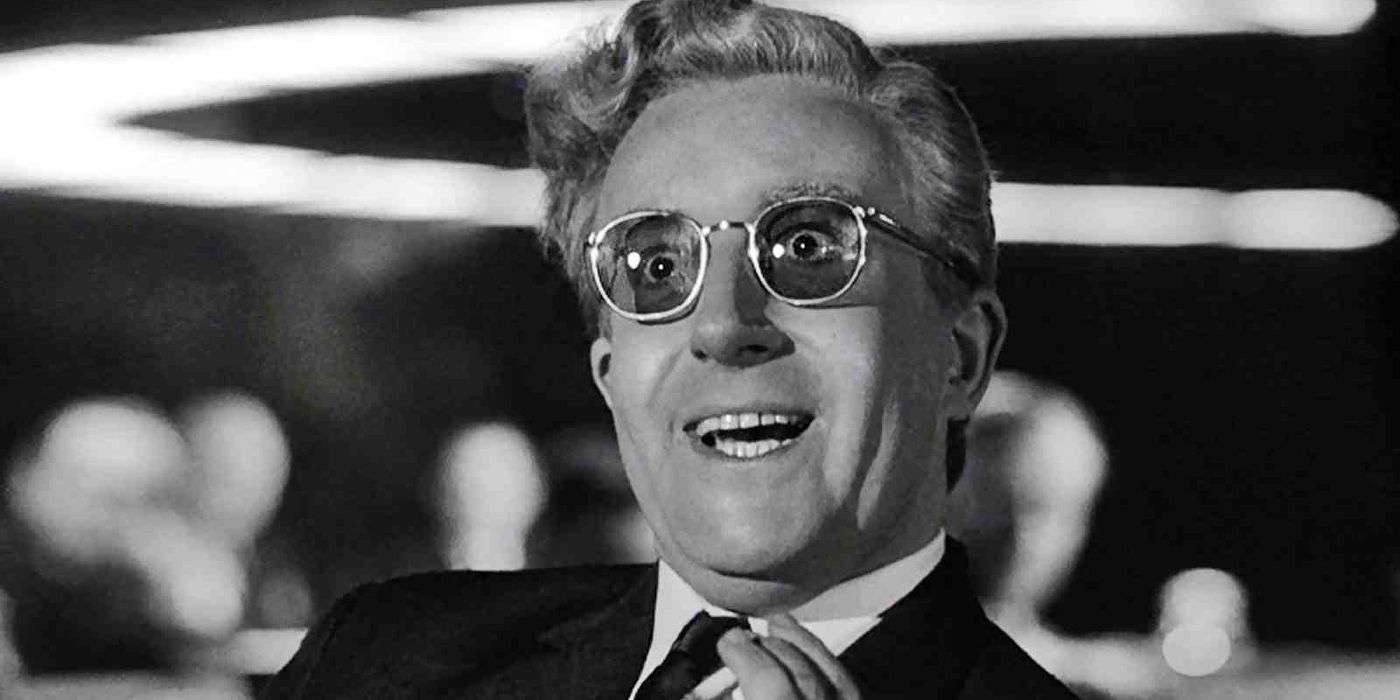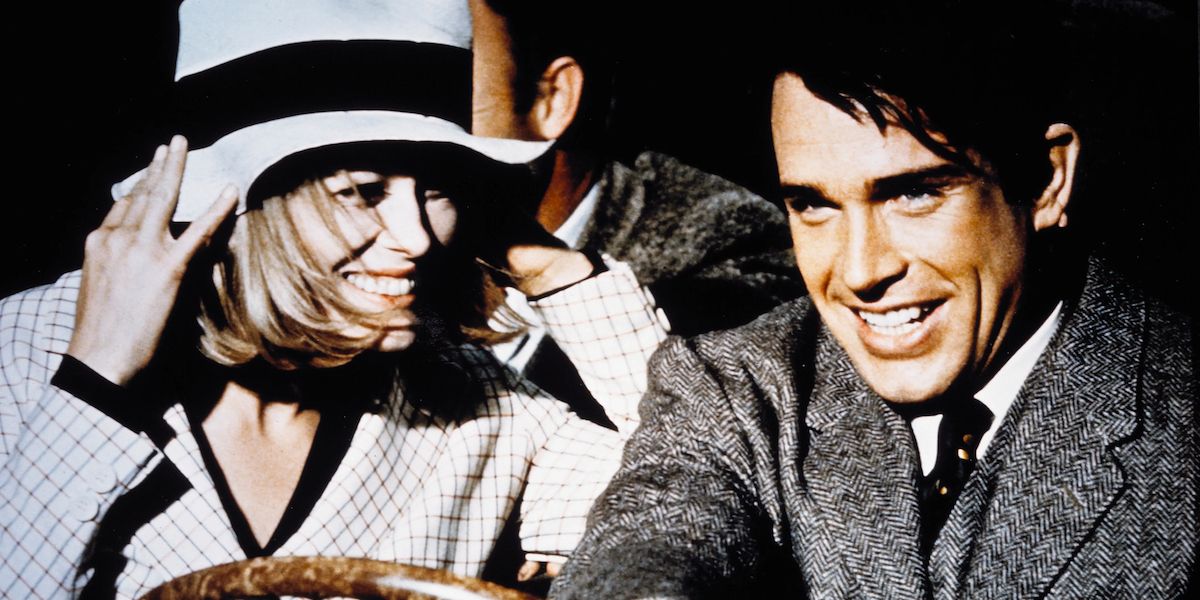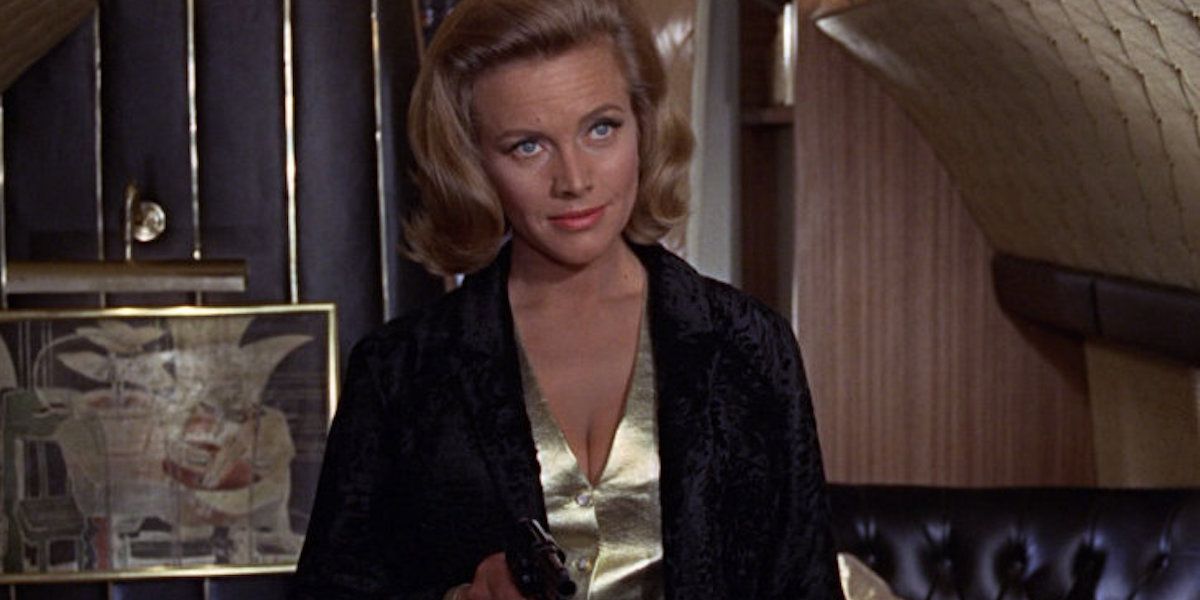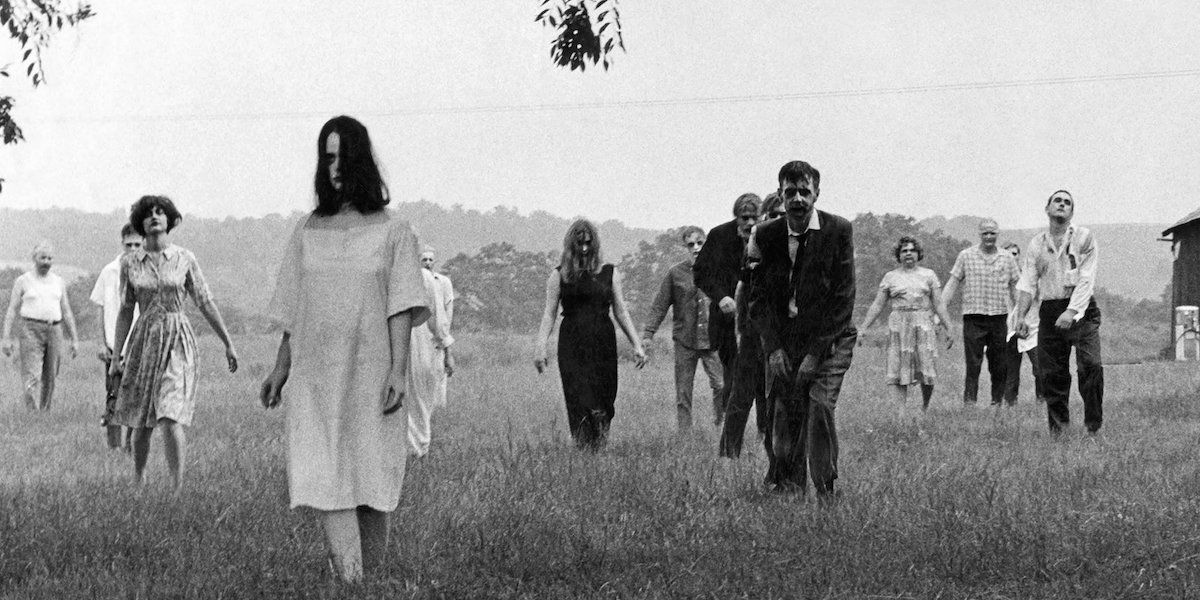The 1960s saw the rise of New Hollywood, with the entertainment industry drifting away from the antiquated studio system, as audiences flocked to films from a variety of genres (sci-fi, horror, Spaghetti Westerns, superspy) while still showing up in droves for more traditional entertainment like epics, musicals, comedy and prestige dramas.
This decade saw the long-established Hollywood censorship code go defunct, increasing the possibilities for risk-taking filmmakers to make groundbreaking, even taboo-pushing classics. Social change and unrest was reflected on screen for sure—and many of the decades' biggest hits sought primarily to entertain.
1 'Psycho' (1960)
Already at the height of his popularity, Alfred Hitchcock thrilled and terrified international audiences with his most famous shocker. The director's penchant for playing with his audience, "like a piano," as he'd say, is all over Psycho. A big star at the time, Janet Leigh is brutally killed off in the final moments of the first act—and dreamy, doe-eyed heartthrob Anthony Perkins is cast against type, as serial killer Norman Bates.
If there is a flaw in Psycho, it's the unnecessary coda where a lawman explains the plot to the audience that's just seen the film and is fully aware of what happened. It's a small pock mark upon one of the best-directed of all motion pictures—the most suspenseful movie of all time according to the American Film Institute.
2 'The Sound of Music' (1965)
One of two Robert Wise musicals of the decade to win the Academy Award for Best Picture (West Side Story won four years prior), The Sound of Music furthered Julie Andrews' status as Hollywood royalty a year after she won the Best Actress Oscar for Mary Poppins. Her other most famous role is here as Maria Von Trapp, a nun who falls for a widowed war hero as World War II looms over Austria.
Nearly 60 years later, The Sound of Music's replay value is remarkable, and its pop-culture presence is hard to overstate. It's been restored and remastered over and over, and remains a sentimental audience favorite. Musicals weren't Wise's only area of expertise: 1963's The Haunting is one of the most influential supernatural horror films ever.
3 '2001: A Space Odyssey' (1968)
Stanley Kubrick's sci-fi magnum opus remains the auteur's most acclaimed and influential film. The collaboration and struggle between man and machine transcends space and time in the enigmatic, endlessly interpreted and reinterpreted enigmatic take on an Arthur C. Clarke short story.
2001 won the Academy Award for Visual Effects, and will forever be a touchstone in that field. The best performance in the epic film is Douglas Rain as the voice of HAL 9000, a chilling villain. Along with the likes of Blade Runner and Metropolis, 2001 is one of the highest achievements of science fiction filmmaking.
4 'Lawrence of Arabia' (1962)
If one motion picture embodies epic filmmaking at its finest, perhaps it's this one. David Lean's crowning achievement (he also made box-office leviathan Doctor Zhivago, Brief Encounter, The Bridge on the River Kwai, and great Charles Dickens adaptations) stars Peter O'Toole as British Lieutenant T.E. Lawrence, based on his book Seven Pillars of Wisdom.
Stunningly photographed in Super Panavision 70 and co-starring Omar Sharif and Alec Guinness, Lawrence of Arabia runs nearly four hours long in its full cut with theatrical intro, outro and intermission. Just over a minute longer than Gone With the Wind, it's the lengthiest film ever to win the Academy Award for Best Picture.
5 'To Kill a Mockingbird' (1962)
Harper Lee's Pulitzer-Prize-winning great American novel received a worthy (some would even say superior) motion picture in Robert Mulligan's understated yet deeply moving black-and-white masterpiece. Best Actor Oscar-winner Gregory Peck gives his best-remembered performance as Southern lawyer Atticus Finch, widowed father appointed to defend a Black man (Brock Peters) accused of rape.
The film debut of Robert Duvall (in a silent, third-act role), To Kill a Mockingbird is a timeless look at prejudice and morality—nominated for eight Oscars including Best Picture. The American Film Institute named Atticus Finch the greatest hero in the history of film.
6 'The Good, the Bad and the Ugly' (1966)
Clint Eastwood is the Man With No Name in a film whose reputation precedes it, an artistically exquisite Spaghetti Western, about archetypal characters competing in a hunt for Confederate gold amidst the backdrop of the American Civil War.
Sergio Leone's crown jewel was a financial success, though misunderstood by some critics in its day. These days, The Good, the Bad and the Ugly is considered by many to be the best Spaghetti Western ever made, the best Western ever made, and even the high point of Eastwood's incomparable filmography.
7 'The Graduate' (1967)
A defining work of the decade's New Hollywood movement (along with the likes of Bonnie & Clyde, Midnight Cowboy, Easy Rider, Guess Who's Coming to Dinner, Butch Cassidy and the Sundance Kid and more), Mike Nichols' enormously profitable dramedy stars Dustin Hoffman as a disillusioned college graduate who's seduced by an older woman (Anne Bancroft), then falls for her daughter (Katharine Ross).
Crystaline filmmaking, sharply funny writing and the timeless music of Simon & Garfunkel make The Graduate a subtly melancholic classic with lots of replay value. Nominated for seven Oscars including Best Picture, with Nichols taking home the statue for Best Director.
8 'Peeping Tom' (1960)
A disturbing psychological thriller so lurid it ruined one of Britain's most esteemed auteurs, Peeping Tom is an uncomfortable look at voyeurism that's intrinsic to cinema. If a little indirectly, this is one of the best movies about making movies, from a master whose career was ended unjustly and far too early. This is the first-ever movie to put the audience in a killer's POV (thus making it arguably the first slasher film). The effect was too much for audiences and critics of the time.
The Red Shoes helmer Michael Powell directed this technically exquisite horror film about a serial killer obsessed with filming his victims' dying moments. Peeping Tom was released the same year Psycho saw considerable box-office success. Peeping Tom is notably far more interested in psychology and internal things than giving audiences a thrill. It isn't fun, but it's essential viewing for anyone with a passion for the film medium.
9 'Dr. Strangelove or: How I Learned to Stop Worrying and Love the Bomb' (1964)
Also known as just Dr. Strangelove, Kubrick's farcical masterpiece is a contender for the title of best comedy ever made. In a dark satire of fears of a nuclear conflict between the Soviet Union and the U.S., Peter Sellers gives the performance of his storied career in three roles.
Uncannily chilly and calculated on the surface (Ken Adams' set design is some of the best ever) yet silly in spirit, Dr. Strangelove was among the inaugural crop of 25 films selected for preservation in the National Film Registry by the Library of Congress in 1989.
10 'Bonnie and Clyde' (1967)
"We rob banks." Along with The Graduate, another movie that must be discussed in every conversation about New Hollywood is Bonnie and Clyde. Warren Beatty and Faye Dunaway star in Arthur Penn's highly influential crime film about the infamous robbers and the manhunt around them.
Bonnie and Clyde broke many taboos for studio filmmaking, with graphic violence that still shocks to this day (particularly the unforgettable climax). It took a while for some analysts to catch on, but it's now widely revered as a watershed masterwork.
11 'Goldfinger' (1964)
The popularity of Ian Fleming's James Bond novels caught fire in the 1950s; it wasn't long before 007 made it to the big screen. Eon's carefully crafted Dr. No was an international hit, and 1963's follow-up From Russia With Love was even better—it's now considered one of the high points of espionage filmmaking. But no one could have anticipated the zeitgeist-gripping phenomenal success of Bond's third big-screen adventure, a masterpiece that balances campy outlandishness and character-rich grit with surgical precision—like no other film ever has, even.
Guy Hamilton's Goldfinger made Sean Connery the most famous movie star of the time; the Scottish actor lending danger, humor and sex to the iconic hero. The comic thriller sees 007 face sadistic madman Auric Goldfinger (Gert Fröbe) hellbent on breaking into Fort Knox (not to rob it) with the assistance of slinky personal pilot Pussy Galore (Honor Blackman). Goldfinger is one of the most exciting, re-watchable and deliriously entertaining motion pictures ever, still the high point of cinema's longest-running franchise.
12 'Night of the Living Dead' (1968)
There are a handful of seminal horror films that altered and redirected the genre: Frankenstein took studio horror to new heights, Halloween incidentally invented the modern slasher, and Scream subverted it—to name a few. Another watershed moment is Pennsylvania native George A. Romero's black-and-white shocker that invented the zombie.
Night of the Living Dead exploited the newly defunct censorship code to show mainstream audiences unprecedented levels of gut-eating graphic violence, opening the gates for '70s shockers like The Last House on the Left, The Hills Have Eyes and Romero's own superior sequel Dawn of the Dead. Night of the Living Dead is a terrifying horror film with an undercurrent of social commentary.



